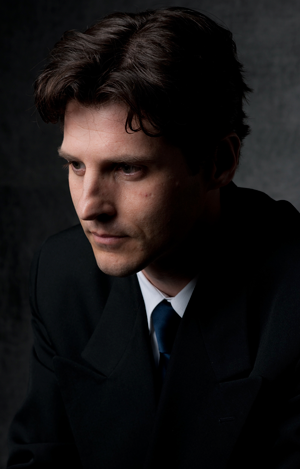Posted by Laura on May 22, 2015 in Older Articles
Creativity is a natural part of being human. As the educator Ken Robinson notes, it’s not an ability a person has or doesn’t have. It’s inherent; it’s just a matter of understanding how the creative process works and exercising it each day. The idea generator inside of us can grow strong and healthy if we condition it.
We’ll experience some of these creativity exercises in Unleash Your Creative Potential, a creativity/storytelling workshop I present on Tuesday, June 23, 2015 at Colorado Free University. We’ll use drawing and writing exercises to develop original characters and a personal story.
I began my career in the arts in 1990 as a cartoonist. Over the years that work evolved into animation and live action films for Maryland Public Television/PBS, Oprah Winfrey Network, Nextel and many others, working on projects with some pretty notable artistic heavyweights: Martin Scorsese, Mariska Hargitay, Brian Cox, and Bill Melendez among them. The discoveries I’ve made in that time make up the backbone of what we’ll experience on June 23.
Here are three essential habits we’ll exercise that I believe help develop our natural creativity.
Curiosity
As creators (especially of fictional characters) we must be inquisitive about our characters. If you don’t care enough to try and get to know your character your audience certainly never will.
The Second City Training Center in Chicago, the legendary comedy center that helped launch Dan Aykroyd, Gilda Radner, John Candy, Mike Meyers, Chris Farley and so many other gifted comics, recently asked me to present a workshop on bringing characters to life.
One student had a character in his original story that wasn’t fully developing. It was a witch, and she lived on a mountain. She was planning to poison the protagonist. The writer struggled to establish her motivation.
I grilled him with all sorts of questions about the witch. What does her house look like? How does she move when she walks? What’s her voice sound like? Why does she hate the protagonist so much? Why does she want to poison her?
It led to this question: How are her potions made? The writer hadn’t considered this yet. He started imagining the wild herbs that grew on the mountainside and the daily ritual the witch had in collecting them. In his mind he saw her hand picking the herbs. It was a soft, delicate hand, and that image alone gave him new insight about the character.
I unleashed another barrage of questions. It led to this: How does the witch know the protagonist? This struck a nerve. The writer hadn’t fully explored this aspect yet. He knew she was a relative, a sister. Great! I said. What were the sisters like growing up? Were they close? The wheels started turning in the writer’s mind as he began imagining their early lives – and it was so exciting for both of us to see discoveries made right before our eyes!
The questions not only helped the writer better understand his character, they generated ideas for new scenes that brought the story to life and moved the plot forward.
Playfulness
We must be playful and open to new ideas. Negativity is the enemy of creativity. It will kill an idea before it ever has a chance to live. Responses like “No!” “That’s stupid.” “That won’t work, because…” are not helpful in the early stages of generating ideas. Arguably, critiques are important at a later stage of the creative process (when we refine our ideas), but when we are generating ideas criticism only impedes and prevents our ideas from developing.
Don’t be too quick to reject an idea. No matter how impossible, implausible, outrageous, or silly it appears, keep going. Keep asking questions and spontaneously, playfully explore the answers. You will be stimulated by where it takes the story.
Trust your instincts
They will not steer you wrong. It’s imperative we listen to that little voice inside of us because it helps infuse our work with personal perspective. It leads us to some place deep inside and let’s us access our uniqueness. And that gives a work its strength.
These are the kinds of ideas we will explore in my creativity workshop, Tuesday, June 23, 2015 at Colorado Free University. I hope you’ll join us!
Steven Fischer is a two-time Emmy nominated writer/producer/director known for the films Freedom Dance with Mariska Hargitay and Old School New School with Brian Cox (watch Old School New School). Cartoon lovers can check out his new cartoon book, The Wonderful, Happy, Cartoony World of Steve & Bluey at http://www.steveandbluey.com
Register for Steven’s Unleash Your Creative Potential event on Tuesday, June 23, 2015 6:30-8:30pm.

